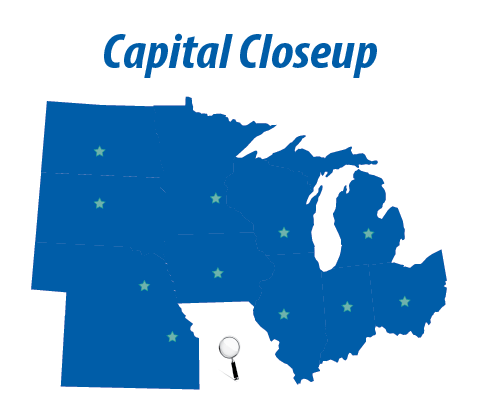Capital Closeup | Filling of legislative vacancies
A unique case, and dispute, over filling vacancies ends with North Dakota Supreme Court decision
Vacancies in state legislatures occur on a regular basis. A member dies or resigns. A member is elected or appointed to a new position. States in the Midwest handle the filling of these vacancies in different ways, with some requiring special elections, and others handing this authority to the governor, political parties or a party caucus in the state legislature (see table).
But what happens if the vacancy occurs before the person ever takes office, or is even elected? Do the same state laws on legislative vacancy still apply?
This unusual circumstance occurred in North Dakota in 2020, and it took a ruling by the state Supreme Court to answer these questions and resolve a dispute between the governor and legislature.
David Andahl, a candidate for state representative, died on Oct. 5 due to complications from the coronavirus; 29 days later, he won 35.5 percent of the vote — enough to secure a seat in the North Dakota House, where the two top vote-getters win election. A day after the election, Gov. Doug Burgum appointed someone to fill the seat. The problem: North Dakota doesn’t typically grant this power to the governor. Instead, legislative vacancies are filled by “the district committee of the political party that the former member represented in the district.”
Burgum argued this statutory language did not apply. “The law is only triggered when there is an office-holding member of the legislature who fails to serve out his or her term,” the governor’s attorney, Robert Pathroff, said during oral arguments.
A provision in the North Dakota Constitution gives the governor the power to fill a vacancy when “no other method is provided.”Burgum argued that his “gap-filling” authority should allow him to make the legislative appointment.
The North Dakota Supreme Court, though, was not persuaded by this argument. “The question is whether there will be a vacancy in the office of state representative for District Eight,” the court said in its opinion. Yes, the justices said, there is such a vacancy in this case; as a result, the law on filling legislative vacancies applies.
Capital Closeup is an ongoing series of articles focusing on institutional issues in state governments and legislatures.
How vacancies and legislatures are filled